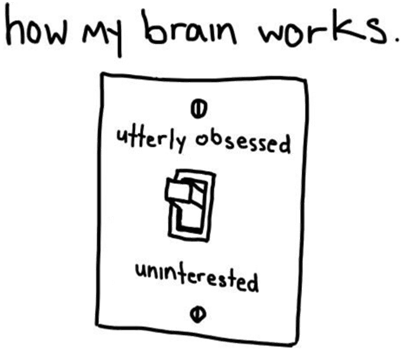
Literacy as of now
I would like to start of this blog with a sort of recap of what I had initially believed literacy to look like. When I first thought of the concept of literacy I figured it had to connect with what I read. A simplistic list: novels, articles, and online short stories. I’m sure I may have thought of more but those were the three that struck me right at that moment–my own personal trio–and even then that list was expanded on in our first group discussion. I think it was song lyrics that really caught me off guard because that is such a part of my literary practice! Even now I am listening to music as I type these words. It was at that moment that I realized I had little idea the gravity that simple word: literacy. So what does literacy mean to me? If I must answer that then come with me and you will see a world of pure speculation!
The answer to that is not as simple as I had once thought but bear witness as I simplify that answer: literacy is an ever-changing device that aids us in understanding ourselves, others, and the vast collection of cultures around us. The science behind communication. From the first grunt and point combination to the new world of digital communication; our literacies have been slowly–or perhaps rapidly–changing but the purpose remains the same. We, as people seek to understand. As my earlier opinion demonstrated, I viewed literacy as a key to understanding myself. My interpretation of literacy had little to do with communication with others and largely dealt with my comprehension skills.
From Szwed’s “Ethnography of Literacy” there is a sort of urgency in ensuring that the scholarly statistics include subcultures, “(t)he end product… should be an inventory from at least one American sub-communities literacies.” Let us take a moment to process that, doesn’t it stand to reason we would examine sub-cultures in literacy if literacy itself is an attempt to understand our cultures and others? Yet, it seems that Szwed actually has to make an entire article over this very concept. Two factions appear throughout literary history that seem in a constant tug-of-war: the linguistic conservative and the linguistic progressive. Half of those studying literacy beckon a time of perfect literacy–a sort of language fascism that calls upon a make-believe utopian past to justify itself–while the other half seeks to embrace change. Change is inescapable and uncompromising. Let us, for a moment, look at twitter, a social platform I despise, for how inescapable changes in literacy are. I hate twitter but despite my hate of it it thrives and, for some, it is a connection to the world around them. It can function as a way of finding like-minded people or to rant at the world.
In every article we have read there seems a sort of battle between these factions of literacy. Those who say change is death are on the losing side of history, it is unavoidable. From Deborah Brandt’s “Sponsors of Literacy,” this quote spoke to me, “literacy… is a valued commodity… a key resource in gaining profit and edge” and this made me recall my interview with my dad. Any time he sought to address the word of literacy he wanted to stress his failure or success in the subject. He measured his successes with grades he received in his schooling and his failures with his inability to apply them. His words made me deeply reflect on my past look on literacy, for I too had a similar opinion. A book was my literacy because I could read, an article was literacy because I can understand, but lyrics to a song never crossed my mind. You feel lyrics, you don’t read them, but how isn’t that literacy? The importance of literacy is the ability to apply it, we no longer grunt to make our point known, no longer dip our hands in the mouth of fire to know it is burning (and if you do still tend to do that for the love of all that is don’t!), just as we change so too does literacy. So as for my understanding of literacy now? Well, it is the ability to communicate and understand how others communicate. All forms of communication, from the text to novel, or tweet to language. Literacy will forever adapt just as we do, just as we must.
As for individual literacy, well, individual literacy is an illusion. Our understanding of anything comes from knowledge passed down to us, for the purpose of writing down information in the first place was to expand on ancestral knowledge. Our own individual understanding comes from notions of others. English is a collection of grunts that we claim means something because our culture allows it to mean something. Literacy, by its very nature, is social as it is the aspect of understanding.

 Website:
Website: